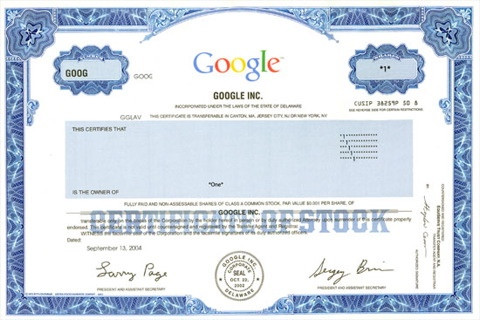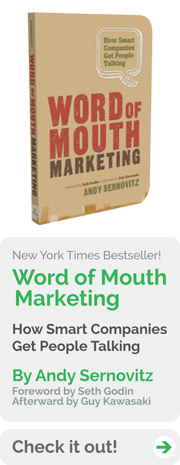This guest post is from Andy Nulman — President of Just for Laughs and author of “Pow! Right Between the Eyes: Profiting from the Power of Surprise.” See the original post this was adapted from and more like it on his blog.

The phrase “You Are What You Eat” became a mainstay of individual definition in North America during the hippy-dippy 1960s… although it was first uttered by a French lawyer/politician in 1826.
In the latter part of the 20th century, the defining features of who we are turned from the inside of our bodies to the outside, and the phrase morphed into “You are what you wear.”
These days, given the overwhelming tsunami of social media, the conventional wisdom of who we are has shifted away from us and onto others, to become “You are what you share” — whether you choose to share your feelings about food, clothing, French lawyers/politicians, or the act of sharing itself.
The quaint, person-to-person chatter that old-schoolers like me used to call “word of mouth” has exponentially super-sized to become a quantum currency more powerful (and less likely to wildly fluctuate) than Bitcoin. People smarter than yours truly have dubbed this phenomenon “The Sharing Economy,” where people believe — and more importantly, act on — things they hear from people they know and trust than from anywhere else.
This is why every business, every YouTuber, every social cause, every Tweet, and every Facebook page implores you not merely to listen to them, but to tell others as well.
By following suite, our personal lives have transformed into a massive, multi-level marketing scheme. I just may have to change my name to Amway Nulman.
In his 2013 book Contagious, Wharton School marketing professor Jonah Berger outlines six factors how things get shared, and perhaps his prime reason for one to do so is the creation of “Social Currency,” i.e. how one comes across to their friends and network if they pass along a piece of information.
What’s fascinating about this phenomenon is not what you’re telling others about others when you share something; it’s what you are telling them about you.
McLuhan was right; the medium is indeed the message.
Look at your Facebook Newsfeed to see what I mean. There are “friends” you ritually ignore and ponder why you still haven’t bothered to de-friend. Yet there are others whose shared posts you jump on right away; for instance, I know Matthew Cope will be sending along something political or quirky, while Robert Tercek will provide me with the absolute latest in the world of start-ups and tech. Although I rarely see or speak to either, I know exactly what they’re all about.
Taking this one step further is the story of the Facebook group I put together for a class I’m teaching at McGill University. I have 50 students, and despite the fact that I see them live twice a week, I know more about their likes, dislikes, political leanings, backgrounds, passions, and pastimes by following what they choose to post on the class feed than I do by anything they’ve said in — or after — class.
It’s a living, ongoing psychological revelation, a modern-day Rorschach test. The students’ personal and personality revelations allow me to focus on and better react to them in ways I’d never be able to do if I had to exclusively rely on our face-to-face encounters.
Scary? Perhaps. But quite helpful. And powerfully accurate.
So what did I learn?
Well, as I said above, “You are what you share.” But perhaps more importantly: What we share isn’t exactly “who we are,” but who we want to be, and how we want to be seen.
So despite that we seem to be prone to raw, indiscriminate revelations, we are actually subconsciously controlling our own personal message with what we choose to share. And if YOU choose to share this, you’ll be showing everyone you know just how damn smart you are… or how shameless I am. 😉
————–
P.S. The image on top? One share, of course!
About Andy Nulman
President of Just For Laughs, world's biggest comedy organization. Former mobile tech entrepreneur. Wild public speaker. Wilder public dresser. Author. Hockey player. Gym rat. Needs a longer bio.


